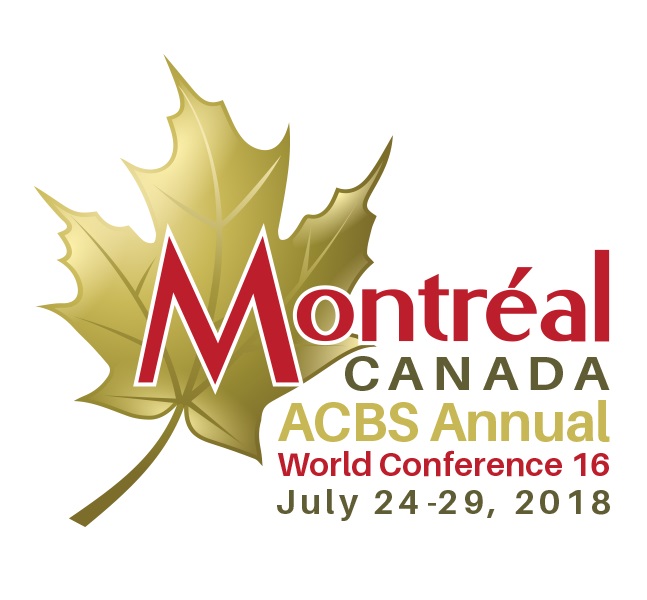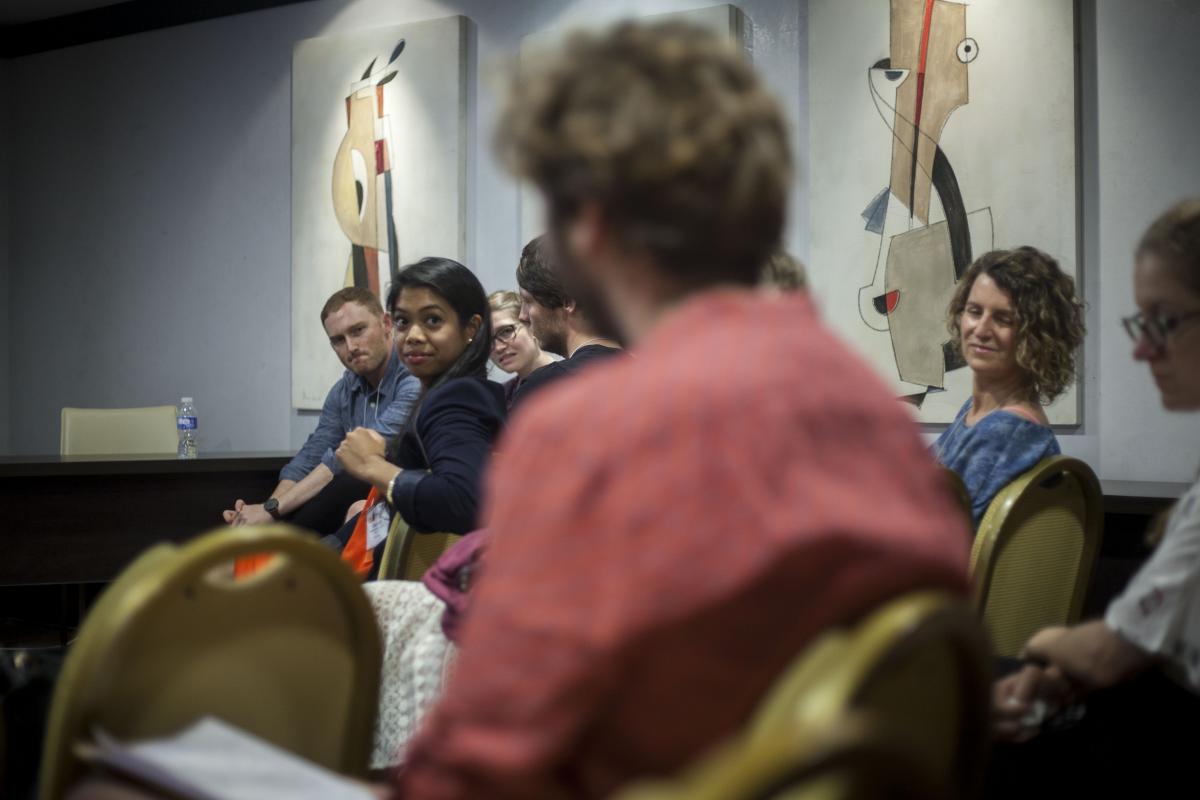Pre-Conference Workshops for WC16
Pre-Conference Workshops for WC16July 24-25, Montréal, Québec, Canada
Unforgettable. Inspiring. Cutting-edge. Inviting. ACBS Pre-Conference Workshops are well-known as a source for world-class CBS, evidence-based trainings. Here is the heart of ACBS. Where therapists and researchers of all ages sharpen their skills, and push their limits. Where expert trainers from across the globe converge as a creative force aiming to shape and support all those in attendance. Where life-long friends reconnect, or meet for the first time.
What to Expect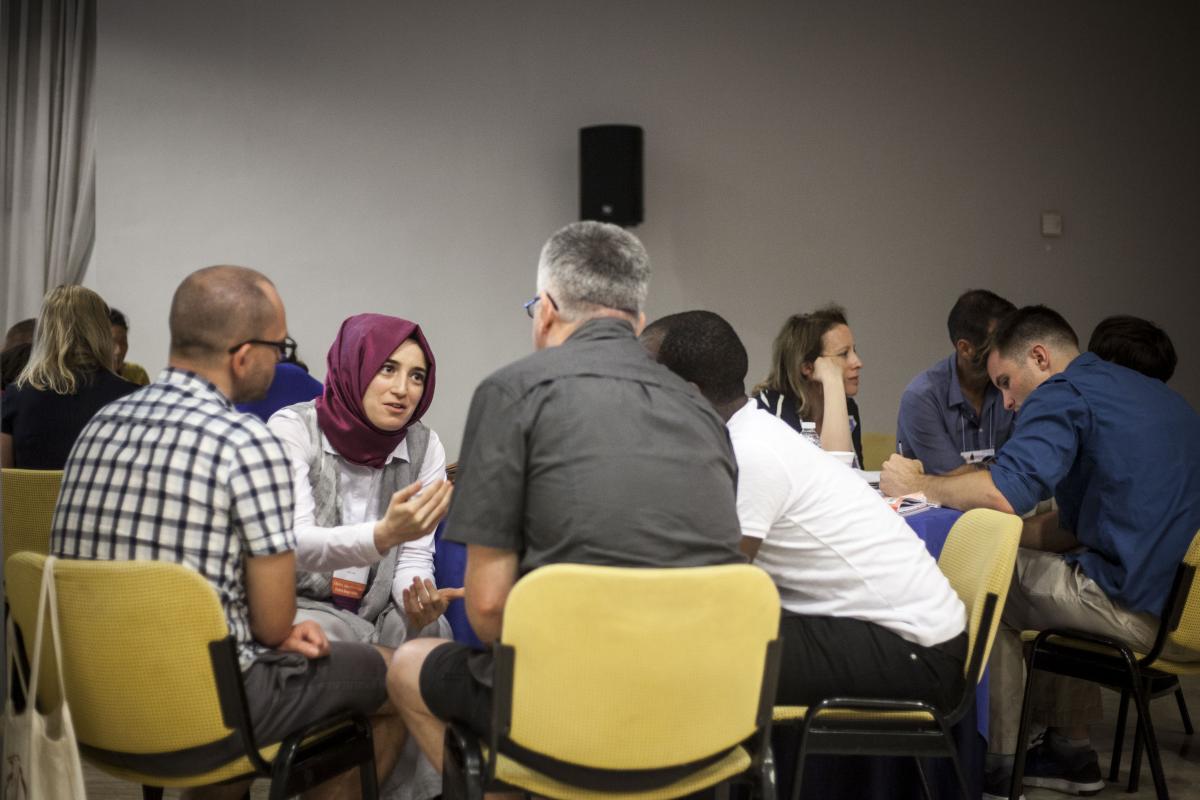
The 2018 Pre-Conference Workshops offer exciting new opportunities that will engage therapists and researchers of any skill level. Highlights include:
Acceptance and Commitment Therapy (ACT): Participate in experiential and didactic workshops to learn this empirically supported therapy
Relational Frame Theory (RFT): Apply this modern perspective on cognition and language to your own research or practice
Emotionally Focused Therapy (EFT): Explore the application of EFT with couples
Compassion Focused Therapy (CFT): Engage compassionate emotions within your clients with a processed-based approach
Functional Analytic Psychotherapy (FAP): Learn to deepen and generalize your clinical skills
Combining therapy role-plays, experiential exercises, case presentations, data graphics, focused lectures, and small group discussions, you can expect high-quality training from ACBS Pre-Conference Workshops. Continuing Education Credits are available.
Be sure to review the list of workshops below to see your full list of options.
When, Where, and How Much?
These workshops will be held the two days immediately preceding the ACBS World Conference 16.
Tuesday, July 24, 2018 - 9:00 a.m. - 5:15 p.m.
Wednesday, July 25, 2018 - 9:00 a.m. - 5:15 p.m.
They will be held at the Fairmont The Queen Elizabeth/Le Reine Elizabeth in Montréal, Canada.
More general Registration information can be found here.
Pre-Conference Workshop Registration Rates (July 24-25, 2018)
The workshops below will be held the 2-days immediately preceding the ACBS World Conference 16. They will be 9:00 a.m. - 5:15 p.m. on each day.
The workshops run concurrently, so you may only register for one pre-conference workshop. Also note that they require their own registration and fee (they are not included as part of the ACBS World Conference). CE credits are available.
Above prices include lunch each day, twice daily coffee/tea on site, and a general certificate of attendance.
*(US Dollar amount is provided for information only and may vary slightly based on current exchange rates. Canadian Dollar (CAD) amount will not change. If your bank account or credit card is in CAD, and your bank charges a currency transaction fee to USD, you may see a slight variation in the amount charged, based on the day's exchange rate.)
Additional information about registrations, refunds, etc., can be found here.
Learn about the specific workshops here.
Complete List of Pre-Conference Workshops - WC16 Montréal
Complete List of Pre-Conference Workshops - WC16 MontréalACBS World Conference 16, Pre-Conference Workshops - Register now!
July 24-25, 2-day workshops: 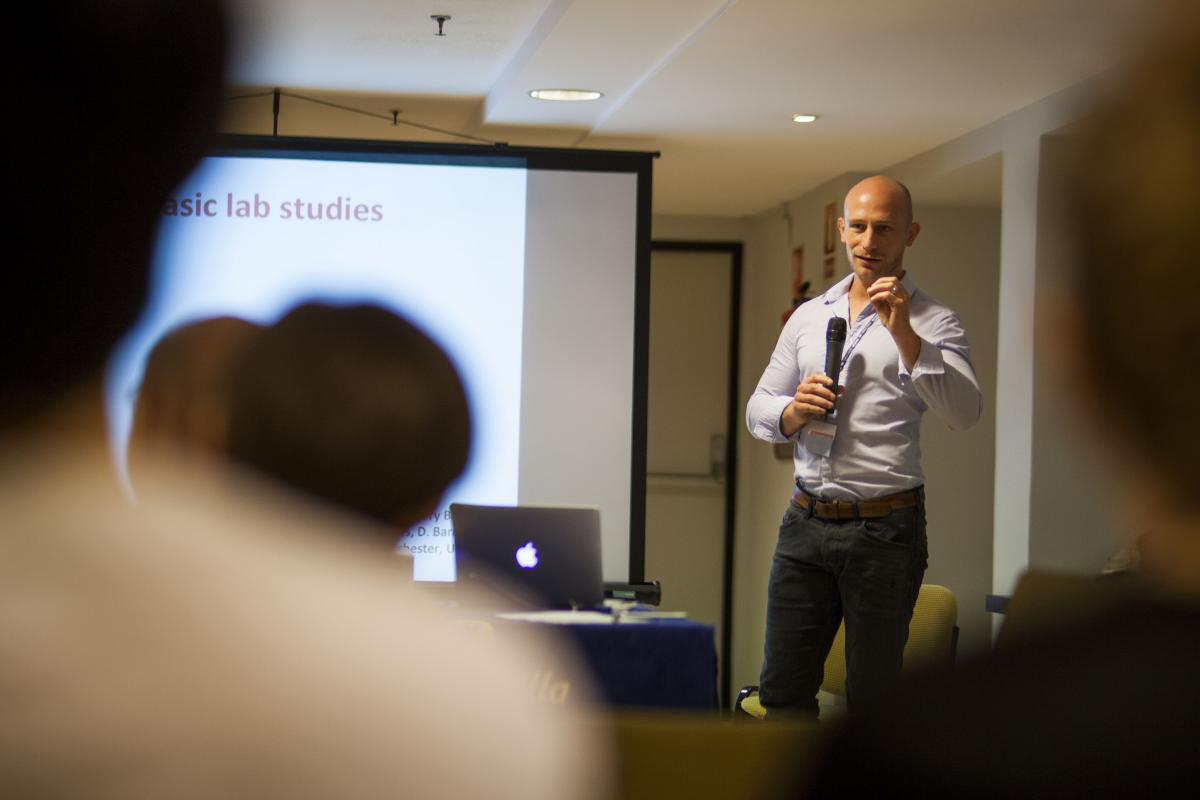
En français
Frédérick Dionne, Ph.D., Jana Grand, M.A., Jean-Christophe Seznec, M.D.
(Clinique; Débutant, Intermédiaire)
In English
Helen Bolderston, Ph.D., David Gillanders, Psy.D.
(Clinical; Intermediate, Advanced)
Louise Hayes, Ph.D.
(Clinical; Intermediate)
Sue Johnson, Ed.D.
(Clinical; Beginner, Intermediate, Advanced)
Siri Ming, Ph.D., BCBA-D, Ian Stewart, Ph.D., John McElwee, M.S., BCBA, Diana Ferroni-Bast, Ph.D.
(Clinical, Research; Beginner, Intermediate, Advanced)
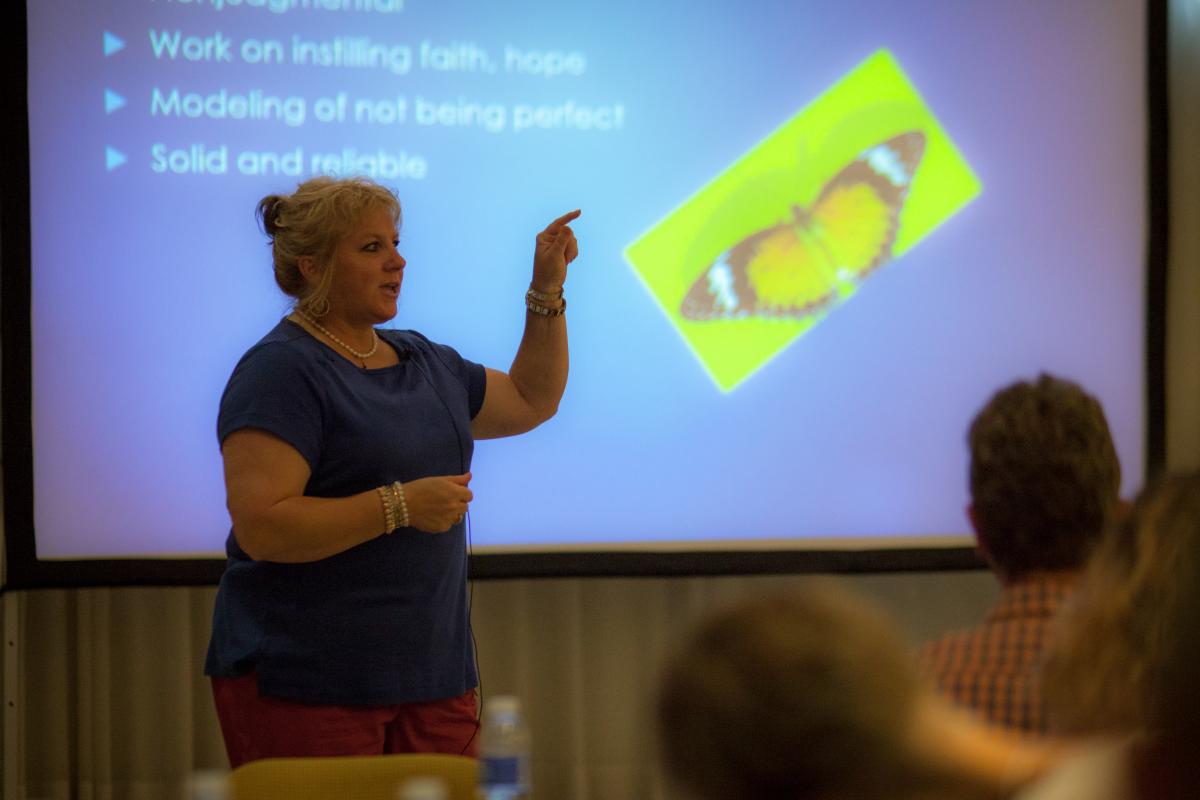
Patricia Robinson, Ph.D.
(Clinical; Beginner)
Mavis Tsai, Ph.D., Robert J. Kohlenberg, Ph.D.
(Clinical; Beginner, Intermediate, Advanced)
Niklas Törneke, M.D., Carmen Luciano, Ph.D., Kelly Koerner, Ph.D.
(Clinical; Beginner, Intermediate, Advanced)
Matthieu Villatte, Ph.D., Robyn D. Walser, Ph.D.
(Clinical; Intermediate, Advanced)
Kelly Wilson, Ph.D.
(Clinical, Research; Beginner, Intermediate, Advanced)
A Functional Contextualist Approach to Early Language Training: Using Relational Frame Theory to Promote Linguistic Generativity
A Functional Contextualist Approach to Early Language Training: Using Relational Frame Theory to Promote Linguistic GenerativityA Functional Contextualist Approach to Early Language Training: Using Relational Frame Theory to Promote Linguistic Generativity
Workshop Leaders:
.jpg)

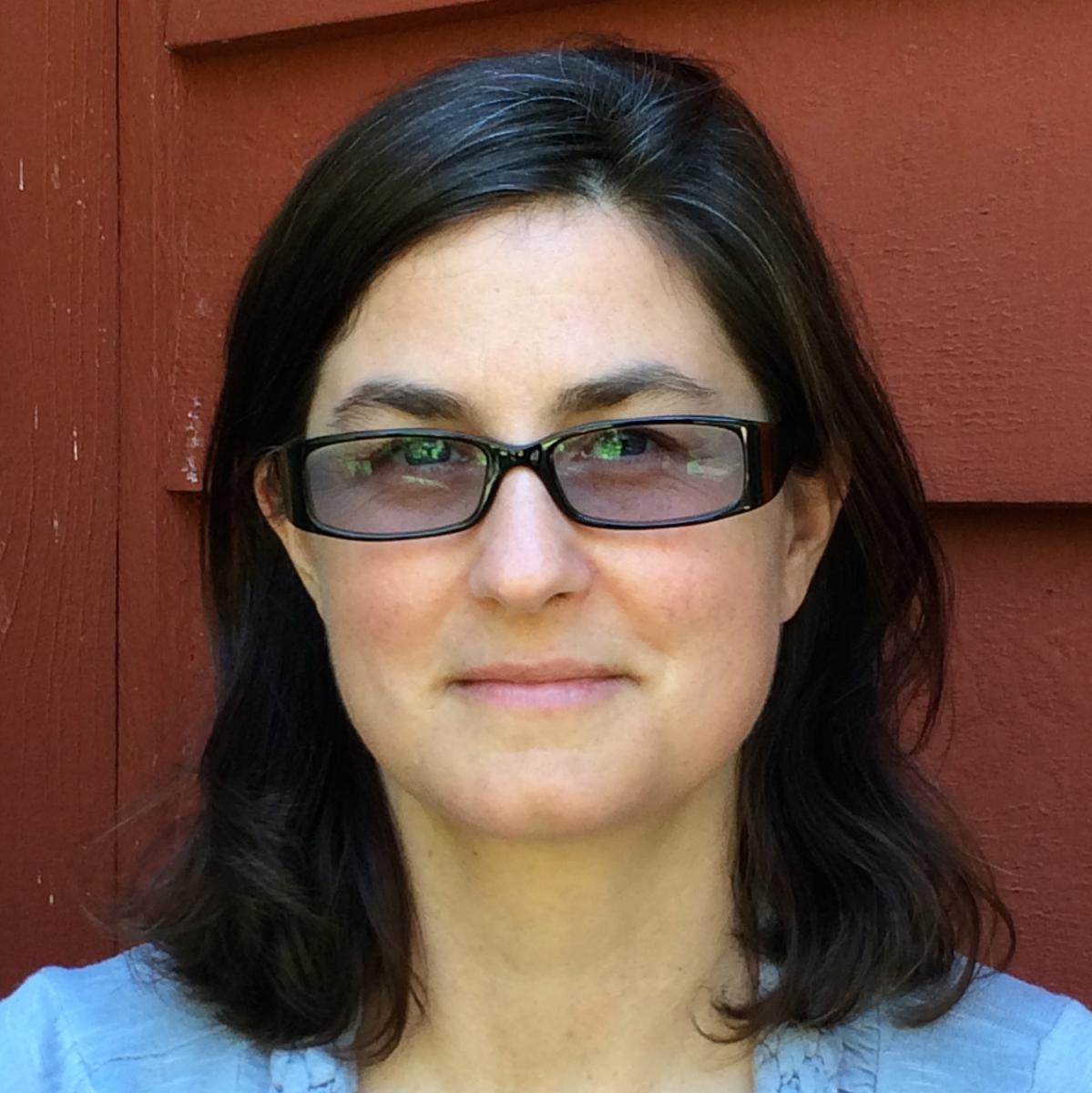
Relational Frame Theory (RFT) sees generalized derived relational responding—relational framing—as the core skill involved in human language, essential for flexible, fluent conversational skills and academic progress. Relational responding repertoires have been highly correlated with language and IQ measures, relational training programs have shown powerful effects on both academic skills and IQ, and a key domain for the application of RFT has recently been in teaching children with language and academic deficits. In this highly interactive workshop, we identify relational responding repertoires as behavioral cusps to teach towards an ultimate aim of establishing generative language, and present a powerful framework for approaching early intervention, based on RFT and informed by decades of research and practice.
Our approach synthesizes RFT theory and applied research on the assessment and training of derived relational responding skills with strategies developed by programs which follow a more traditional behavior analytic and specifically Skinnerian analysis of verbal behavior, including an emphasis on analyzing motivational variables, training mands, and conducting training in the natural environment. In this workshop we focus on teaching key aspects of both approaches, and will discuss how RFT and a functional contextualist philosophy inform our work with children with autism and other developmental delays, as well as with their families and their support teams. However, we also invite participation from researchers or practitioners working with early language development in other populations.
We assume that participants have a common interest in assessing language as behavior within an environmental context, and using all the tools at hand to influence that behavior. We intend for this workshop to give participants more tools to do that with, whatever their current approach might be. Decades of research have established the effectiveness of applied behavior analysis (ABA) as an intervention for children with autism and other developmental delays, and for participants who are using a more traditional behavior analytic or Skinnerian verbal behavior approach, we explicitly do not propose a wholesale replacement of current behavior analytic programs. Rather we invite participants to review their approach to assessment and programming with a new focus, and we will introduce new ways of conceptualizing language skills that will enhance existing practices, particularly with respect to issues of rote vs flexible, generative responding. For participants who are using curricula based on an RFT approach already, we invite a deeper exploration of the underlying theory, and introduce a framework for problem-solving when lesson plans are not producing desired outcomes.
Participants can expect to learn the essentials of RFT, along with effective, evidence-based practical strategies for promoting generalized and generative language repertoires. We will provide a comprehensive workbook of teaching protocols and data sheets, and will coach participants in the implementation of both assessment and training plans. We will review the empirical basis for the programmatic suggestions in this workshop, but we also sincerely invite participants, as scientist-practitioners, to be a part of enlarging the evidence base for these programs, and will devote some time within the workshop to discuss potential avenues for further research.
The primary focus of this workshop is on intervention with children from the preschool through the early elementary stage (i.e., ages 2 – 8), although the principles will apply for older children with language delays as well.
About Siri Ming, Ph.D., BCBA-D.:
Dr. Ming is a practicing behavior analyst with over 20 years experience in the field, working with individuals with developmental disabilities and autism and their families in a variety of capacities from direct interventionist to county level quality assurance. Her research and practice focus is on the synthesis of Skinnerian Verbal Behavior and Relational Frame Theory, using a functional contextualist approach, and she has authored numerous peer-reviewed research and theoretical articles on applications of RFT. She has provided training and consultation for agencies and individual consultants using an analysis of verbal behavior approach to programs for children with autism since 1996, and has conducted workshops on applications of RFT for nearly a decade. Her clients include consultants and agencies from throughout North America, Europe, the Middle East, Nigeria, and India.
About Ian Stewart, Ph.D.:
Dr. Stewart is a fellow of the Association for Contextual Behavioral Science, and is the author of four books on RFT and ACT, over a dozen book chapters, and nearly 100 peer-reviewed research and theoretical articles. He has been teaching and conducting research at the National University of Ireland, Galway since 2002, where his research focuses on the analysis of language and cognition from a contextual behavioral and more specifically Relational Frame Theory perspective. He has been providing workshops on RFT in the context of early intervention programs for children with autism for over a decade.
About John McElwee, M.S., BCBA:
John McElwee is a practicing behavior analyst who has provided consultative services to school districts and behavioral health agencies for over 40 years on the application of ABA for students and clients with Autism Spectrum Disorder. He received his Master of Science degree from the University of Calgary in 1972, where his studies emphasized Applied Behavior Analysis (ABA). John passed his Boards in Behavior Analysis in 1999 and was given charter member status. He has been a contributing member of Ian Stewart’s Relational Frame Theory (RFT) lab for over 15 years, has numerous publications, and has given workshops on the implementation of RFT concepts in early intervention programs for children with autism for over a decade.
About Diana Ferroni-Bast, Ph.D.:
Dr. Diana Ferroni-Bast has been a qualified behavior analyst and clinical psychologist since 2005. She received a Ph.D. from the National University of Ireland (NUI) Maynooth in 2015 under the supervision of Prof. Dermot Barnes-Holmes for research using the IRAP. After gaining her Ph.D. she started postdoctoral research at the Autism Institute at Federal University of São Paulo, Brazil (UFSCAR) funded by the São Paulo Research Foundation (FAPESP). She is now collaborating with Dr. Stewart as a visiting postdoctoral researcher at NUI Galway. Her work includes assessment and training of hierarchical relational framing, investigating processes related to Acceptance Commitment Therapy (ACT) using an RFT approach and translational research.
Learning Objectives:
- Using an assessment and programming flowchart, describe the priorities for assessment and intervention for learners at early and more advanced skill levels with an emphasis on behavioral cusps for generative language.
- Describe and identify resources for teaching essential foundations for generative verbal behavior, including observational learning, recombinative generalization, and flexibility of tacting under changing sources of stimulus control.
- Describe the defining features of relational frames; distinguish between derived, generalized, and taught responses; and distinguish between arbitrary and nonarbitrary relational responding.
- Describe different types of relational frames, including coordination, distinction, opposition, comparison, spatial relations, hierarchy, and deictic frames (perspective-taking), and describe recent applied literature on establishing a variety of relational frames.
- Demonstrate how to assess and teach nonarbitrary and arbitrary relational responding skills in relations of coordination.
- Describe the elements of frames of coordination/stimulus equivalence and examples of current literature using equivalence-based teaching; develop and practice implementing equivalence-based-teaching plans for efficiently teaching new content.
- Demonstrate how to assess and teach nonarbitrary and arbitrary relational responding skills in relations of distinction.
- Demonstrate how to assess and teach nonarbitrary and arbitrary relational responding skills in relations of opposition.
- Demonstrate how to assess and teach nonarbitrary and arbitrary relational responding skills in relations of comparison.
- List the differences between teaching categorization from an equivalence perspective and teaching hierarchical categorization; demonstrate how to assess and teach class inclusion.
Target Audience: Beginner, Intermediate, Advanced, Clinical, Research
Components: Conceptual analysis, Literature review, Experiential exercises, Didactic presentation, Case presentation, Role play
Package Includes: A general certificate of attendance, lunch, and twice daily coffee/tea break on site.
ACT therapists’ use of self: Working with self; working with stuckness
ACT therapists’ use of self: Working with self; working with stucknessACT therapists’ use of self: Working with self; working with stuckness
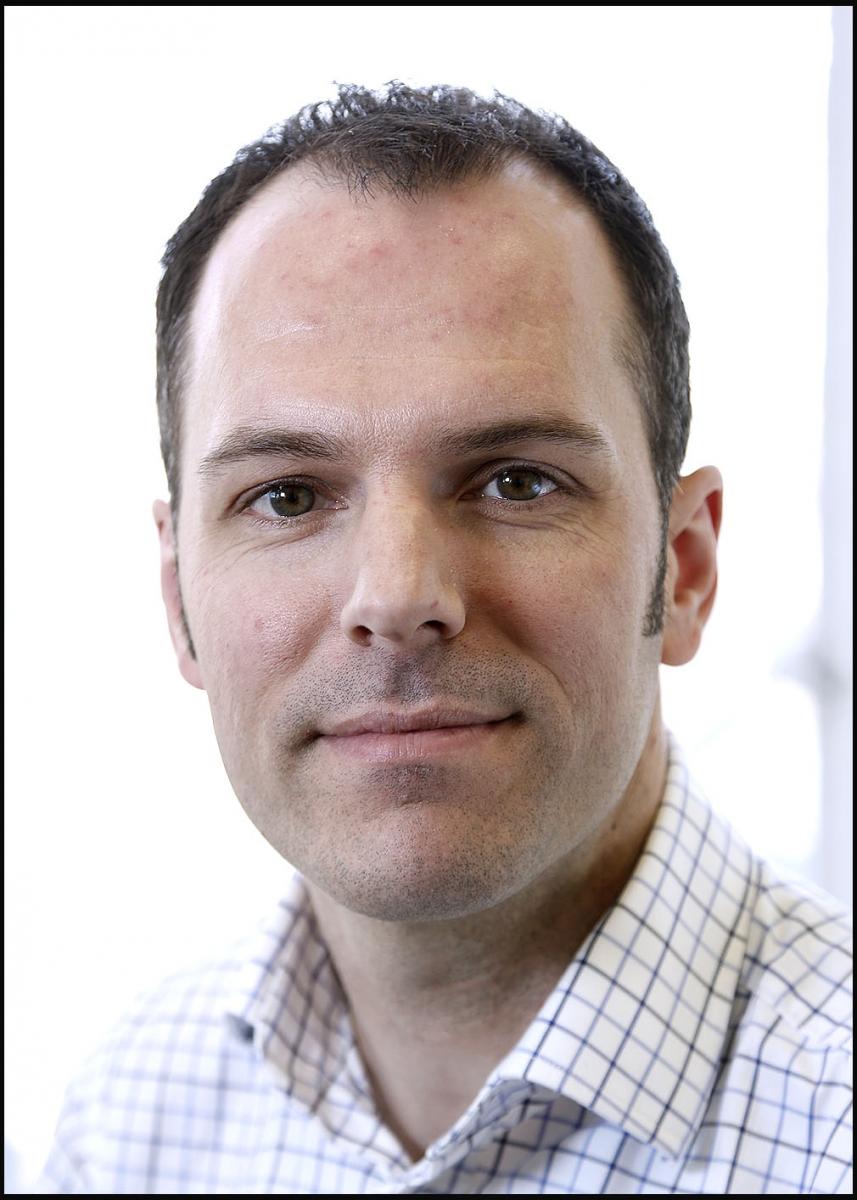
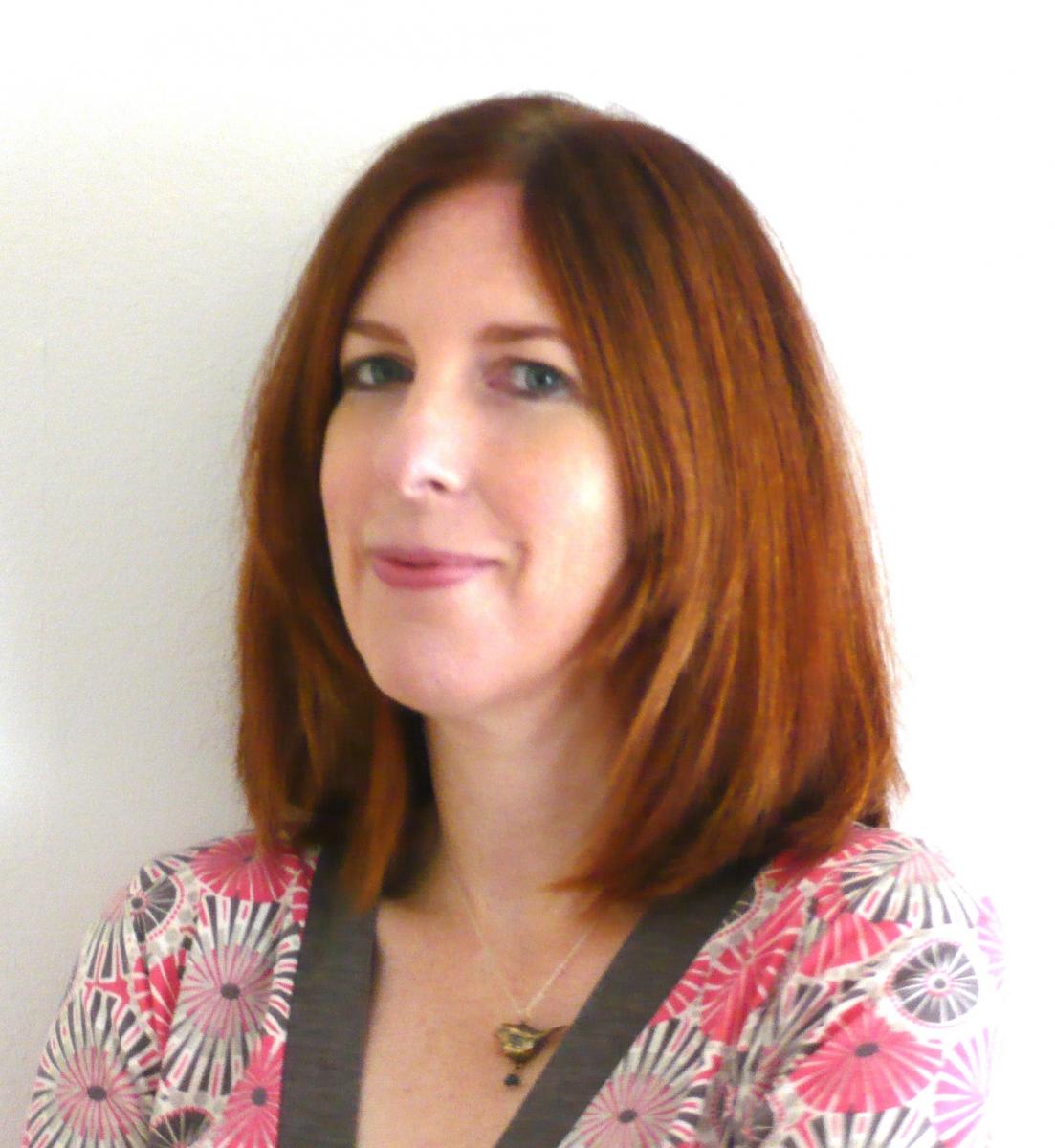
Workshop Description:
Skilful ACT requires the therapist to use their own moment-by-moment experiences to inform their interactions with clients—the use of self as an instrument of therapeutic change. Accounts of ACT in textbooks can neglect these aspects of the therapy in favour of descriptions of exercises and metaphors, as the latter are more readily explored on the page, compared to the subtleties of therapists’ ways of being and relating. Cognitive behaviour therapy training has not traditionally emphasised therapists cultivating the awareness, willingness, and skills to be present psychologically and to use that presence therapeutically, unlike other approaches such as humanistic psychotherapies.
This 2-day workshop, drawing on understanding from ACT, Mindfulness, Functional Analytic Psychotherapy, and humanistic approaches such as Gestalt, will emphasise the use of therapist self-exploration, experiential exercises, small group work, and facilitator demonstration, to support participants in beginning to consider these important inter and intra-personal abilities within the context of ACT. Attention will be paid in the workshop both to the therapeutic relationship and to psychological self-support for therapists.
These therapist abilities to access and use self and relational in-the-moment ‘data’ will be used, in particular, as the basis of a more curious, appreciative and effective relationship with therapeutic stuckness.
Participants should already have some familiarity with ACT and be working with people. Suitable for intermediate and advanced practitioners.
About Helen Bolderston, Ph.D.:
Helen Bolderston is a Chartered Clinical Psychologist with almost 30 years’ experience working predominantly in mental health settings. She is also a senior lecturer in Psychology at Bournemouth University. She was a consultant psychologist in the UK National Health Service (NHS) for many years before moving to her current academic post.
Her particular area of expertise is acceptance-based psychotherapies, especially Acceptance and Commitment Therapy and mindfulness taught in the form of Mindfulness Based Stress Reduction and Mindfulness Based Cognitive Therapy. She has also trained in Dialectical Behaviour Therapy and Gestalt Psychotherapy.
Her most recent NHS clinical work was with people with complex, chronic psychological difficulties; people who are often given personality disorder diagnoses. In others settings she has worked with people with a broad range of mental health difficulties, as well as physical health issues such as chronic pain.
She has led ACT training pre-conference workshops at ACBS World Conferences and UK/Ireland Conferences, and regularly provides ACT and mindfulness training and supervision for NHS clinicians.
She leads a programme of ACT and mindfulness research at Bournemouth University.
About David Gillanders, Psy.D.:
David Gillanders is Academic Director of the Doctoral Programme in Clinical Psychology at the University of Edinburgh, and a founder member of the Association for Contextual Behavioural Science. He is a peer reviewed ACT Trainer and former Chair of the Training Committee, as well as current President of the ACBS UK & Ireland Chapter. He leads a programme of research into the application of contextual behavioural science to living well with ill health, as well as research into training, supervision and basic measurement in behavioural science. He has published more than 30 peer reviewed articles and several book chapters, and is co-author of the self-help book, Better Living with IBS.
Learning Objectives:
- Describe the potential uses of self-experience within ACT
- Demonstrate 2 ways of bringing other therapy traditions' wisdom into a behavioural understanding of relationship processes
- List 3 non-verbal or subtle aspects of therapeutic interactions
- Demonstrate how to utilize awareness of subtle interactions to shape client responding
- Describe how to use one's own experience as a source of data in therapy
- List 2 ways in which we can utilize in-the-moment experience as a powerful therapeutic tool
- Explain the importance of curiosity and compassion to moments of stuckness
- Describe how one can learn from and improve working with therapeutic stuckness
- Explain how the commitment to self-care is an ongoing act of personal support
- List 2 perspective-taking skills to provide in-the-moment self-support when the going gets tough
Target Audience: Intermediate, Advanced, Clinical
Components: Conceptual analysis, Experiential exercises, Didactic presentation, Role play
Package Includes: A general certificate of attendance, lunch, and twice daily coffee/tea break on site.
Couples Therapy in the 21st Century
Couples Therapy in the 21st CenturyCouples Therapy in the 21st Century
Workshop Leader: 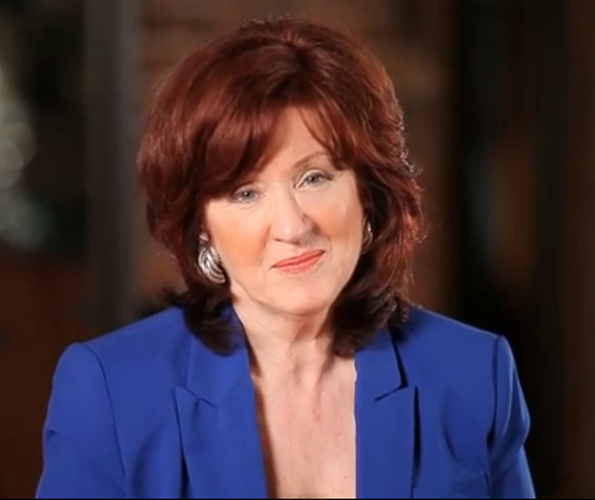
Sue Johnson, Ed.D.
Couples therapy offers us a rich amazing venue to create lasting change in individuals, core relationships and families. This 2 day long workshop will outline the Emotionally Focused Model of Couple Therapy (EFT), and how it illustrates the new science of love and bonding. This new science will be summarized and its implications for the couple therapist pinpointed. We now have a map for love and loving that allows the therapist to be on target: to go to the heart of the matter and shape new interactions that redefine the security of the bond between partners and create an environment of healing and growth.
The EFT model represents the cutting edge of couple interventions and this workshop will address the three main tasks of therapy, creating a safe haven alliance, working to regulate and transform emotions and emotional signals, and choreographing a couple’s dance to foster emotional connection and fulfill attachment needs. The day will include didactic presentations on the nature of love and attachment, the state of couple therapy and the conceptual and clinical base of EFT as well as experiential exercises and the observation and discussion of therapy sessions.
About Sue Johnson Ed.D.:
Sue Johnson Ed.D. is the leading developer of Emotionally Focused Therapy (or EFT). She is a Professor Emeritus of Clinical Psychology at the University of Ottawa, Distinguished Research Professor in the Marital & Family Therapy Program at Alliant University in San Diego, Director of the International Centre for Excellence in Emotionally Focused Therapy (ICEEFT) and Director of the Ottawa Couple and Family Institute Inc. Sue received her doctorate in Counseling Psychology from the University of British Columbia in 1984. She is a registered psychologist in the province of Ontario, Canada, and a member of the many editorial boards of professional journals.
Dr. Johnson has received a variety of awards acknowledging her development of EFT and her significant contribution to the field of couple and family therapy and adult attachment. Sue has been appointed as a Member of the Order of Canada, the country’s highest civilian honor recognizing outstanding achievement, dedication to the community and service to Canada. In 2016, she was named Psychologist of the Year by APA, and has been honored by AAMFT for her Outstanding Contribution to the Field of Couple and Family Therapy. Sue has numerous publications in the field of couple therapy and attachment. Her most recent research in her lab includes Changes in Relationship-Specific Attachment in Emotionally Focussed Couple Therapy (JMFT) and Soothing the Threatened Brain: Leveraging Contact Comfort through Emotionally Focused Therapy (PLOS ONE). This study included a brain scans showing how contact with a loving partner mitigates threat and fear responses. Sue’s most recent book, Love Sense: The Revolutionary New Science in Romantic Relationships, outlines the new understanding of why and how we love based on scientific evidence and cutting-edge research. Sue is also the author of the bestseller, Hold Me Tight: Seven Conversations for a Lifetime of Love. Sue’s other books include The Practice of Emotionally Focused Couples Therapy: Creating Connection (2nd Ed, Routledge, 2004) - the basic text on EFT for couple therapy, Emotionally Focused Couple Therapy with Trauma Survivors (Guilford, 2002) and edited books such as Attachment Processes in Couples Therapy (Guilford, 2003).
Learning Objectives:
The attendee will be able to:
-
List the laws of human bonding and how they operate in adult love relationships.
-
List the stages, steps and interventions of EFT.
-
Explain how the stuck places can perpetuate negative cycles and emotional disconnection in love relationships.
-
Describe how to set up new bonding interactions that redefine connection and change working models of attachment.
-
Describe how to adapt the model to different individuals, including escalated, traumatized, and depressed partners.
-
Describe an experiential exercise to increase emotional connection in couples.
-
Design interventions to help couples with affairs and betrayal.
-
Create interventions to help emotionally distant or shut down partners.
-
Explain how to deal with escalating conflict and volatility in couples.
-
Describe some possible future directions for evidenced-based couples therapy.
Target Audience: Beginner, Intermediate, Advanced, Clinical
Components: Conceptual analysis, Original data, Role play
Package Includes: A general certificate of attendance, lunch, and twice daily coffee/tea break on site.
Developmental interventions on the self and social behaviour of adolescents - Using DNA-v to develop flexibility, mindfulness and compassion
Developmental interventions on the self and social behaviour of adolescents - Using DNA-v to develop flexibility, mindfulness and compassionDevelopmental interventions on the self and social behaviour of adolescents - Using DNA-v to develop flexibility, mindfulness and compassion
Workshop Leader: 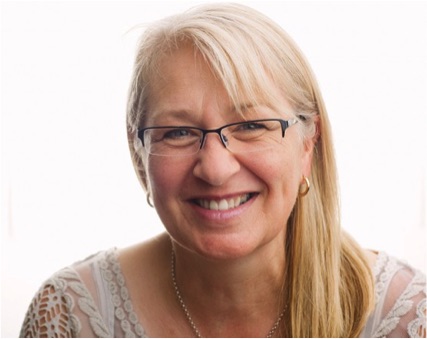
Louise Hayes, Ph.D.
This workshop will focus on how to use the developmental model of ACT, called DNA-V, to help adolescents practice compassion, mindfulness and flexibility with their self and social behaviours.
DNA-v is the distillation of cutting edge science and theory into simple processes that can help young people live well, but it isn’t just for young people, it is also for parents, teachers, mentors etc. This model uses research from evolutionary science, behavioural science, ACT, compassion research, and positive psychology to create a new paradigm for promoting vital living. This makes DNA-v a wholly Contextual Behavioral Science model based on growth and development. It can be used in both educational and clinical settings.
In this workshop, we will focus on understanding and intervening with the developing self, including: how to work with an abusive self, and how to use compassion and mindfulness exercises to create a flexible self. We will also focus on the social world of adolescents, including: how to work with attachments and nurturing, how to build friendship skills, and how to build social groups.
Participants will be provided with prior material on basic DNA-v concepts – reading and videos – so that this workshop can jump straight into skills practice in the areas of self and social behaviours.
This workshop aims to help professionals to:
- Develop functional self-concepts
- Deal effectively with stress and negative feelings about the self and others
- Develop self-compassion
- Build deeper, more satisfying relationships
- Engage in the six patterns of activity that build well-being and vitality
DNA-V is based on the new book, the Thriving Adolescent, by Louise Hayes and Joseph Ciarrochi. Whilst the book is targeting adolescents, it presents a model that can be used to promote positive development at any age.
About Louise Hayes, Ph.D.:
Louise Hayes is a clinical psychologist who focusses on using acceptance, mindfulness, and positive growth treatments. She is well known for her work using Acceptance and Commitment Therapy for young people and is currently the President Elect of the Association for Contextual Behavioural Science. Louise uses acceptance and mindfulness based treatments with young people in schools and clinical settings. She is an author, international speaker, a senior fellow with The University of Melbourne and Orygen, and a peer reviewed Acceptance and Commitment Therapy/Training (ACT) trainer. She is the co-author of the best-selling book, Get Out of Your Mind and into your Life for Teenagers: A Guide to Living an Extraordinary Life, and the newly released book, The Thriving Adolescent: Using Acceptance and Commitment Therapy and Positive Psychology to Help Teens Manage Emotions, Achieve Goals, and Build Connection. Together with Joseph Ciarrochi she conducts research and treatment development; the latest work is DNA-v, a treatment model for young people. Louise is an active philanthropist, taking mental health professionals into the Himalaya to develop their mindfulness skills and raising funds for poor children in remote Nepal. For more information on Louise go to – www.louishayes.com.au or www.thrivingadolescent.com
Learning Objectives:
The attendee will be able to:
- Describe the DNA-v developmental model with young people
- Explain how to apply DNA-v to the self with adolescents
- Demonstrate how the DNA-v model can also be used for understanding and building relationships
- Describe how one can apply DNA-v with adult carers and teachers
- List 3 of the theoretical underpinnings of DNA-v
- Discuss how self-view influences our DNA and can be an important change agent
- Discuss how social-view (our attachments and social relationships) can influence our D, N and A
- Design a plan for using DNA-v with a young client
- Discuss set up and application of DNA-v with groups of young people
- Analyze a case conceptualisation on the self and social behaviours of adolescents
Target Audience: Intermediate, Clinical
Components: Experiential exercises, Didactic presentation, Case presentation, Role play
Package Includes: A general certificate of attendance, lunch, and twice daily coffee/tea break on site.
Doing Experiential Therapy
Doing Experiential TherapyDoing Experiential Therapy
Workshop Leaders:
Matthieu Villatte, Ph.D.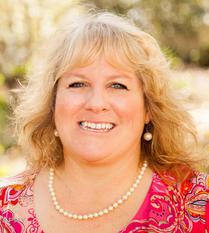
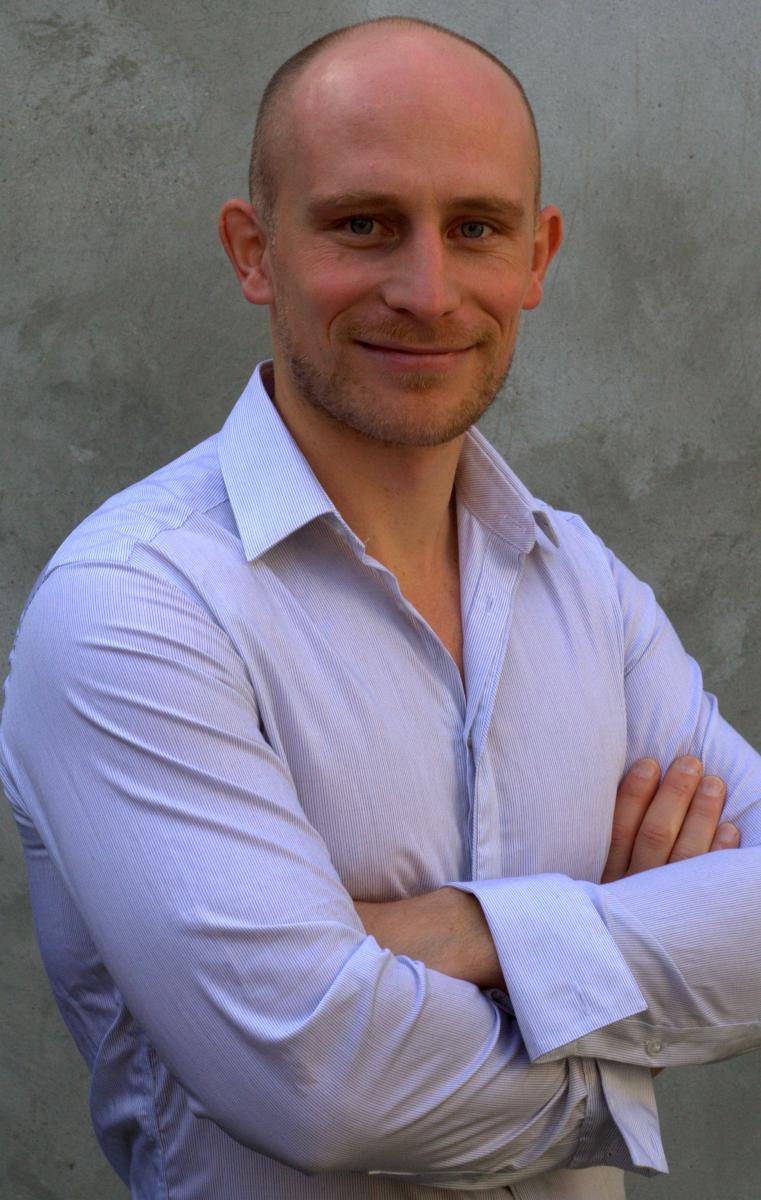
While Acceptance and Commitment Therapy as well as other third wave therapy techniques have been widely disseminated over the past decade, their application within a truly experiential framework often remains a challenge for therapists. The desire for transparency, the need to make rapid progress, the requirements to use EBP –protocols, or simply the difficulty of transforming theoretical knowledge into concrete practice can lead therapists to be too directive and didactic, or conversely, abstract and confusing. The opportunity to develop the autonomy of clients in the sometimes subtle and pragmatic observation of their experience is thereby undermined. Experiential techniques lose their power of deep transformation; exchanges become less personal and meaningful; therapeutic work becomes less interesting and satisfying even to the therapist, and the therapeutic relationship is lost to application of impersonal techniques.
The goal of this training is to assist you in developing or furthering your skill in experiential and process oriented practice. Focus on the therapeutic relationship with emphasis on recognizing interpersonal and intrapersonal processes that can guide intervention. We will build on the principles of contextual behavioral science and relational frame theory, which have been particularly well developed for clinical work in ACT, but are adaptable to all 3rd wave approaches (ex. Mindfulness-based therapies, dialectical behavior therapy, meta-cognitive therapy) and experiential therapies in general (e.g. psychodynamic, hypnosis, gestalt).
What will you learn in this course?
- Doing experiential work without reliance on standard metaphors and exercises, in natural conversations with your clients.
- Grounding your clinical practice in a stance of curiosity, openness, and equality.
- Relying on the therapeutic process rather than on techniques topographically defined to carry your sessions.
- electing, building, and delivering experiential exercises and metaphors that are linked to the client’s experience and housed in the therapeutic relationship.
Through practical exercises, videos, demonstrations, and role plays:
- You will learn to shape your clients’ ability to be in touch with and observe their own experiences, and to draw conclusions adapted to their personal life choices (e.g. how to evoke observation rather than using didactic psycho-education).
- You will develop the ability to adapt to any situation without departing from your experiential stance (e.g. how not to fall into excessive explanations or battles of arguments with dependent, rigid, overly compliant or stuck clients).
-
You will learn to use experiential exercises and metaphors in a way that strengthens the therapeutic relationship (e.g. how to co-develop metaphors with the client and how to integrate them into a natural conversation).
About Matthieu Villatte, Ph.D.:
Matthieu Villatte, Ph.D. is an author and clinical trainer living in Seattle, WA in the United States. He obtained his doctoral degree in psychology in France, where he was trained as a clinical psychologist. He moved to the US in 2010 to complete a post-doctoral fellowship at the University of Nevada, Reno under the mentorship of Steven Hayes, Ph.D. He then worked as an assistant professor in clinical psychology at the University of Louisiana and at the Evidence-Based Practice Institute of Seattle for several years.
Matthieu Villatte is the author of numerous books and chapters on mindfulness, acceptance, experiential therapies, and contextual behavioral science, such as the first manual published in French on Acceptance and Commitment Therapy and his new book, Mastering the Clinical Conversation: Language as Intervention, co-authored by Jennifer Villatte and Steven Hayes.
He is also a peer-reviewed trainer in Acceptance and Commitment Therapy recognized by the Association for Contextual Behavioral Science (ACBS). He has facilitated over 90 clinical trainings in the US, Canada, Australia-New Zealand, South America, and Europe. Over the past few years, he has also run dozens of online trainings gathering participants from all continents.
About Robyn D. Walser, Ph.D.:
Robyn D. Walser, Ph.D., is the assistant director at the National Center for PTSD at the Veterans Affairs Palo Alto Health Care System. She also works as a consultant, workshop presenter, and therapist in her private business, TLConsultation Services. She received her doctorate in clinical psychology from the University of Nevada, Reno. During her graduate studies, she developed expertise in traumatic stress, substance abuse, and acceptance and commitment therapy (ACT). She has been doing ACT workshop trainings, both nationally and internationally, since 1998, training in multiple formats and for multiple client problems.
The attendee will be able to:
- Describe and implement the components of the contextual behavioral therapeutic process
- Describe and implement the components of the experiential therapeutic stance
- Utilize techniques connecting the therapeutic process to the client’s life
- Describe the components of the experiential work on awareness
- Apply process and techniques helping clients observe and describe psychological experiences
- Utilize process and techniques helping clients track functional relationships among experiences
- Demonstrate use of intrapersonal and interpersonal processes and their use in therapeutic practice
- Apply perspective taking techniques increasing the client’s awareness
- Describe the main processes involved in metaphors and experiential exercises
- List techniques to build experiential metaphors with the client
- Describe techniques to deliver and debrief experiential exercises
Target Audience: Intermediate, Advanced, Clinical
Débuter et approfondir sa pratique de la thérapie d’acceptation et d’engagement (ACT): un atelier de mise en pratique
Débuter et approfondir sa pratique de la thérapie d’acceptation et d’engagement (ACT): un atelier de mise en pratiqueDébuter et approfondir sa pratique de la thérapie d’acceptation et d’engagement (ACT): un atelier de mise en pratique
Animateurs d'ateliers: 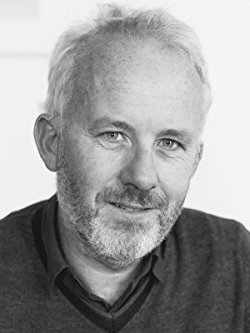
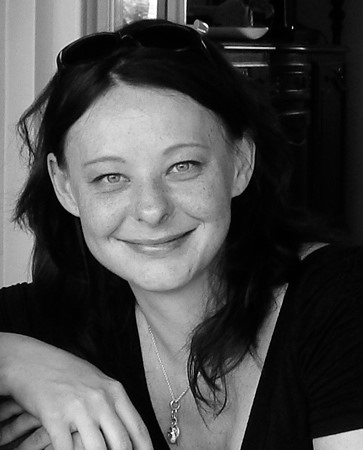
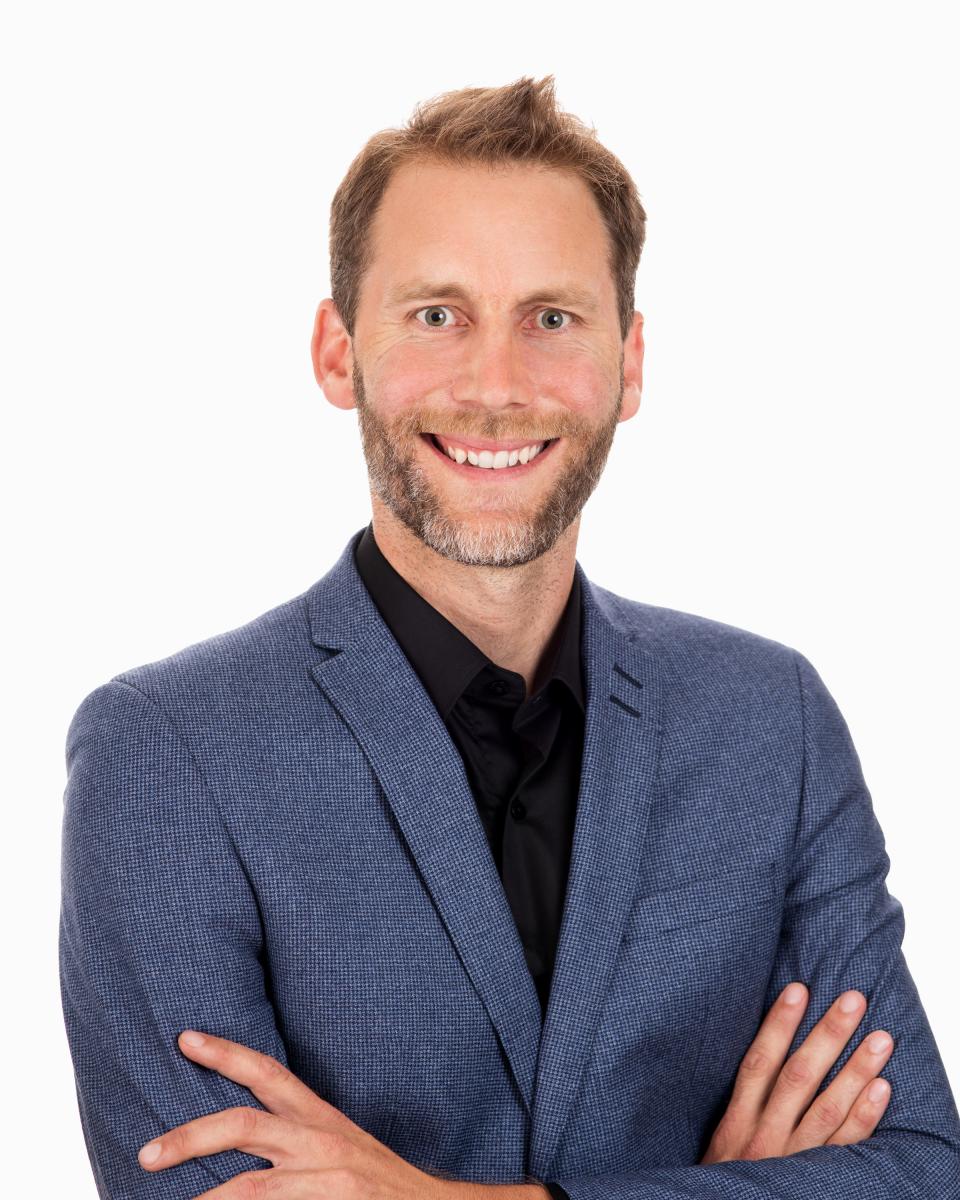
Fairmont Le Reine Elizabeth, Montréal, Canada
Depuis une dizaine d’années, la thérapie d’acceptation et d’engagement (ACT) a connu un essor fulgurant en francophonie. Plusieurs ouvrages, chapitres et articles ont été publiés et l’ACT se développe à grande vitesse dans les milieux de recherche universitaire et auprès du grand public. Plusieurs thérapeutes et patients constatent les effets positifs de l’ACT dans leur pratique professionnelle et dans leur vie personnelle.
La flexibilité psychologique est une compétence centrale développée dans l’ACT. Il s’agit de la capacité à persister ou changer le cours d’une action, même en présence de pensées, sensations et émotions désagréables, afin de progresser vers ce qui est important pour la personne. Deux modèles théoriques sont généralement préconisés dans l’enseignement dans l’ACT : la Matrice et l’Hexaflex.
Cet atelier propose d’expérimenter deux grilles d’analyse différentes (la Matrice et l’Hexaflex) de l’ACT afin de conceptualiser les problématiques des clients et établir un plan d’intervention cohérent. L’ACT est une approche hautement expérientielle qui nécessite de l’expérimenter concrètement afin de la maîtriser. L’atelier vise également à expérimenter plusieurs processus et méthodes thérapeutiques de l’ACT à travers des exercices pratiques et des mises en situation clinique. Il est conçu pour les thérapeutes débutants dans l’ACT et ou ceux qui désirent approfondir leur pratique.
Cet atelier constitue une occasion unique de bénéficier du savoir de trois formateurs aux expertises, aux styles et aux histoires différentes et complémentaires.
Frédérick Dionne, Ph.D., psychologue:
Psychologue clinicien et professeur-chercheur au département de psychologie de l'Université du Québec à Trois-Rivières (UQTR). Il est également directeur de l'Institut de formation en thérapie comportementale et cognitive (IFTCC; iftcc.com) et formateur ACT reconnu par l’ACBS. Il est l'auteur du livre Libérez-vous de la douleur par la méditation et l'ACT aux Éditions Payot et Rivages.
Jana Grand, M.A.:
Thérapeute et formatrice spécialisée dans la thérapie d’acceptation et d’engagement (ACT). Elle est également fondatrice ACTiff et Présidente AFSCC. Elle est coauteure du livre Guide clinique de la thérapie d’acceptation et d’engagement (ACT; B. Schoendorff et M-F Bolduc) aux Éditions de Boeck.
Jean-Christophe Seznec, M.D., psychiatre, psychothérapeute:
Psychiatre, médecin du sport, spécialiste en thérapie comportementale et cognitive, plus particulièrement en thérapie ACT, Jean-Christophe Seznec exerce en libéral à Paris. Il s’intéresse depuis de nombreuses années au corps à travers la danse et le travail du clown. Il a mené des recherches sur le comportement alimentaire, la trichotillomanie, le dopage et les troubles de l’adaptation au travail. Il est l'auteur de nombreux livres et son dernier s'intitule "savoir se taire, savoir parler" chez Interéditions. Il est le co-créateur du site internet Fink.Care, de la plate-forme de téléconsultation Doctoconsult et de l'association S'asseoir ensemble qui promeut la méditation libre et ouverte dans les espaces publics.
Objectifs d'apprentissage:
À la fin de la formation, les participants seront capables :
- D’établir des liens entre les processus thérapeutiques de l’ACT et leurs fondements théoriques (Théorie des cadres relationnels)
- De démontrer les implications pratiques de la philosophie qui sous-tend l’ACT (contextualisme fonctionnel)
- De conceptualiser les cas cliniques selon les modèles de l’Hexaflex et de la Matrice
- D’appliquer les deux grilles d’analyse en fonction de leurs avantages et inconvénients
- D’établir un plan d’intervention individualisé selon l’ACT
- D’expérimenter pour soi-même plusieurs processus centraux de la flexibilité psychologique, comme le contact avec le moment présent, le soi observateur, l’acceptation, la défusion cognitive, les valeurs et les actions engagées
- De pratiquer des interactions et méthodes thérapeutiques qui favorisent la flexibilité psychologique chez son client
- Déterminer les spécificités cliniques dans la prise en charge de troubles fréquents comme les troubles anxieux, dépressifs, obsessionnels compulsifs ou alimentaires.
- De tendre vers le développement d’une relation thérapeutique flexible et ludique
- D’appliquer les processus thérapeutiques à soi comme thérapeute
Public cible: Débutant, Intermédiaire, Clinique
Composants: Analyse conceptuelle, Exercices expérientiels, Présentation didactique, Présentation de l'affaire, Jeu de rôle
Le forfait comprend: Un certificat général de présence, un déjeuner et deux fois par jour une pause café / thé sur le site.
Exploring a Process-Focused Approach to Understanding and Practicing Compassion Focused Therapy
Exploring a Process-Focused Approach to Understanding and Practicing Compassion Focused TherapyExploring a Process-Focused Approach to Understanding and Practicing Compassion Focused Therapy
Workshop Leaders:
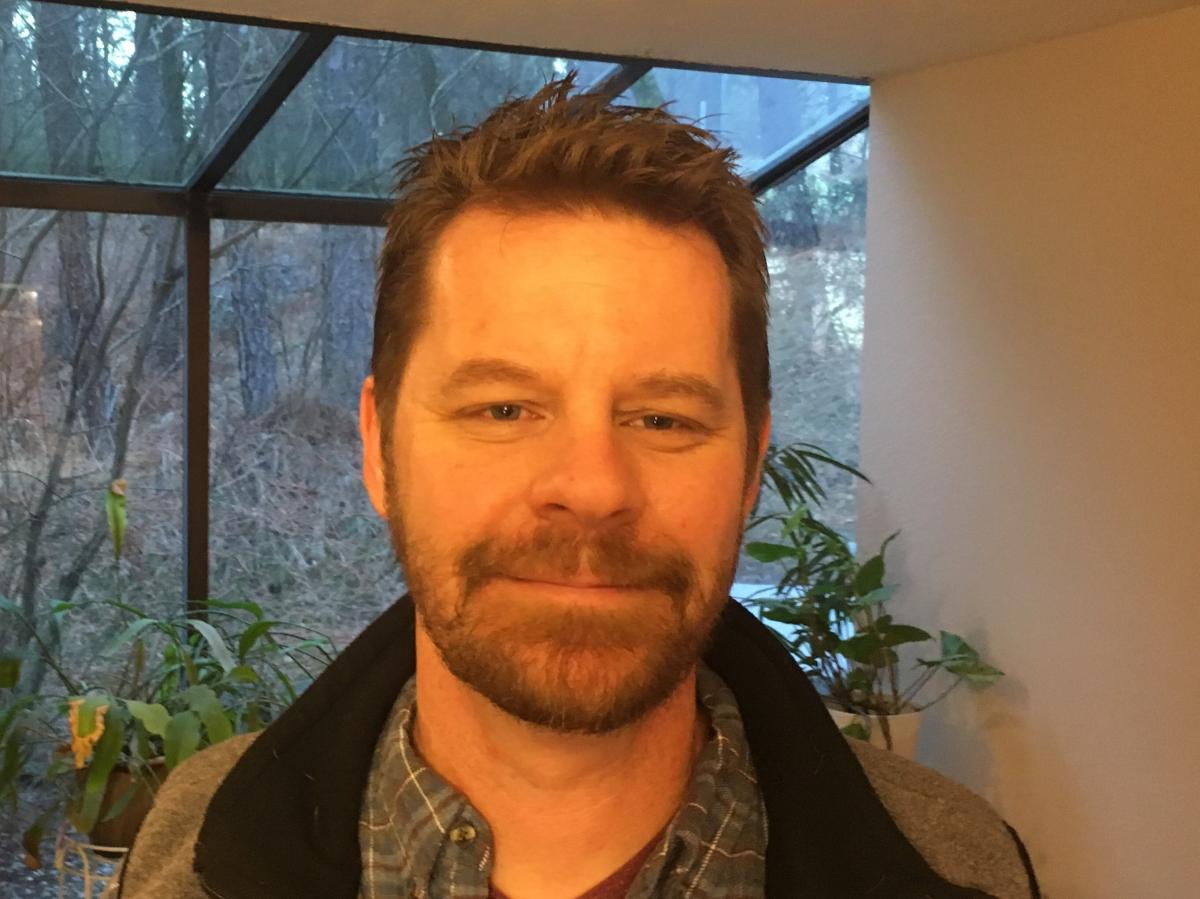
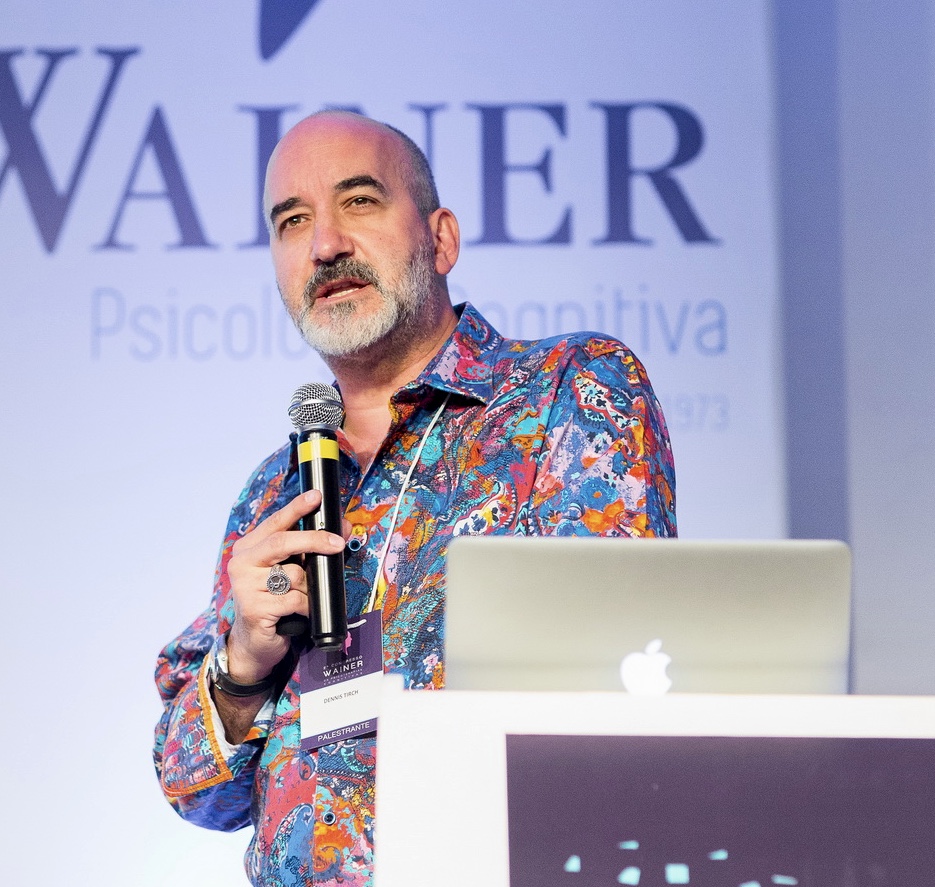
Increasingly, a compelling case is being made that the future of psychotherapy lies not in distinct therapy models, but in interventions that systematically target empirically-based transdiagnostic processes (e.g. Hayes & Hofmann, 2018). This workshop takes a process-focused approach to understanding and practicing compassion-focused therapy (CFT), presenting a conceptualization of CFT as a configuration of interventions aimed at training specific and often interrelated processes that are involved in - and arise from - the experience of compassion.
This workshop will present the working definition of compassion utilized in CFT, and explore how compassion functions as a constellation of processes which facilitate the ability to turn towards painful experiences, work with suffering, and cultivate values-based movement in our clients’ lives (and in our own). We’ll then explore and operationalize compassion via the unpacking of a number of several core, often interrelated processes involved in it, including the facilitation of courage and commitment to confront suffering, the cultivation of functional safeness, and relatedly, a growing ability to experience psychological flexibility.
Drawing upon contextual behavioral science, affective neuroscience, evolution science, and the science of attachment, the workshop will then explore the practice of CFT – both implicit aspects of the therapeutic interaction as well as a number of specific practices – that will allow the clinician to target these processes in psychotherapy. Participants will learn how to use the therapeutic relationship, the facilitation of client realizations via guided discovery, and specific compassion practices to help clients work courageously with life challenges and develop a repertoire of compassionate strengths. Appropriate for newcomers to CFT and veterans alike and led by perhaps the foremost CFT experts to be found in North America, the workshop presents a novel approach to understanding the therapy – aimed at arming participants with a process-focused way of understanding and organizing their work with clients, and a growing repertoire of options for targeting these processes in therapy.
References:
Hayes, S.C., & Hofmann, S.G. (2018). Process-based CBT: The science and core clinical competencies of cognitive behavioral therapy. Oakland, CA: New Harbinger.
About Dennis Tirch, Ph.D.:
Dr. Tirch is the Founder and Director of The Center for Compassion Focused Therapy, and President of The Compassionate Mind Foundation USA. Dr. Tirch is an Associate Clinical Professor at Icahn Medical School at Mt. Sinai, NY. Dr. Tirch is an author of 6 books, and numerous chapters and peer reviewed articles, including The ACT Practitioner’s Guide to The Science of Compassion and Buddhist Psychology and CBT: A Clinician's Guide with Dr. Silberstein and Dr. Kolts. He has also served on the faculty of Cornell Weill Medical College and Albert Einstein Medical School. Dr. Tirch regularly conducts Compassion Focused ACT (CFACT) and CFT trainings, consultation & workshops globally. He is a Fellow of ACBS, Diplomate, Fellow & Certified Consultant & Trainer for The Academy of Cognitive Therapy, Founding Fellow and the Past-President of The NYC-CBT Association, & Founding President Emeritus of The New York City Chapter of ACBS. Dr. Tirch is an Associate Editor of The Journal of Contextual Behavioral Therapy.
About Laura Silberstein, Psy.D.:
Laura Silberstein, Psy.D. is the Associate Director of The Center for Compassion Focused Therapy in New York. Dr. Silberstein also serves as a Adjunct Assistant Professor and Consultant at Albert Einstein Medical College. She is the co-author of 3 books including Buddhist Psychology and Cognitive Behavioral Therapy, A Clinician’s Guide and The ACT Practitioner’s Guide to The Science of Compassion. Dr. Silberstein completed a 2 year externship at the American Institute for Cognitive Therapy, in Manhattan; a pre-doctoral internship at Wyoming State Hospital, and a two year Postdoctoral Fellowship in Cognitive Behavioral Therapy at the Cognitive Behavioral Institute of Albuquerque, New Mexico. Silberstein has advanced experience, and serves as a consultant and trainer in a range of 3rd Generation behavior therapies including CFT, ACT, and DBT.
About Russell Kolts, Ph.D.:
Russell L. Kolts, Ph.D., is a licensed clinical psychologist and a Professor of Psychology at Eastern Washington University, where he has taught for the past nineteen years. He is Founding Director of the Inland Northwest Compassionate Mind Center in Spokane, WA, USA. Dr. Kolts has authored or coauthored a number of books, scholarly articles, and book chapters, including CFT Made Simple, The Compassionate-Mind Guide to Managing Your Anger, Buddhist Psychology and CBT: A Practitioner's Guide (with Dennis Tirch and Laura Silberstein), and the forthcoming Experiencing Compassion Focused Therapy from the Inside Out (with Tobyn Bell, James Bennett-Levy, and Chris Irons, available April 2018). Dr. Kolts regularly conducts international trainings and supervision in CFT and compassion. Dr. Kolts is on the board of the Washington State chapter of ACBS, and has appeared in his own TEDx Talk on CFT and anger, entitled "Anger, Compassion, and What it Means to be Strong," which has been viewed over 100,000 times.
Learning Objectives:
-
Describe a working definition of compassion.
-
List at least three core processes involved in compassion.
-
Describe the three-circles model of emotion in CFT.
-
Describe ways to utilize the therapeutic relationship to create a context of relational safeness in the therapy room.
-
Plan ways to assist clients in cultivating experiences of functional safeness in their lives.
-
Explain the relationship between courage and compassion.
-
Describe methods for assisting clients to develop courage in facing their struggles.
-
Describe the relationship between compassion and psychological flexibility.
-
Utilize the compassionate self practice in helping clients develop compassionate strengths.
-
Describe ways of using Socratic dialogue to facilitate compassionate realizations in the client.
Target Audience: Beginner, Intermediate, Advanced, Clinical
Components: Conceptual analysis, Experiential exercises, Didactic presentation, Case presentation, Role play
Package Includes: A general certificate of attendance, lunch, and twice daily coffee/tea break on site.
Focused Acceptance and Commitment Therapy: ACT as a Brief Intervention
Focused Acceptance and Commitment Therapy: ACT as a Brief InterventionFocused Acceptance and Commitment Therapy: ACT as a Brief Intervention
Workshop Leader: 

Patricia Robinson, Ph.D.
Marcia Sasano, M.Sc.
This two-day workshop provides clinicians that are new to ACT with a brief overview of the Hexaflex and then moves into the fACT Pillars of psychological flexibility. As a brief intervention, fACT makes ACT transparent by requiring clinicians to “focus” (the “f” in fACT) on the unworkable results of avoidance in client behavior. Clinical tools will enable participants to quickly understand and practice the key skills involved in the C.A.R.E. method, a 4-step approach to using fACT. This approach can readily be understood by those new to ACT and may have particular appeal to behavioral clinicians and medical colleagues working closely together to assist patients with psychological, medical, and both psychological and medical problems.
The first skill in C.A.R.E is conducting a 10- or 15-minute assessment that engages the patient and identifies strengths as well as deficits in psychological flexibility (C is for Contextual Interview). Participants will use worksheets to practice the contextual assessment in role-play exercises. The second skill in C.A.R.E. is that of learning to listen with fACT ears while interviewing. With the structure of a worksheet, participants will work in small groups to identify the 3 A’s in client behavior: Attraction, Avoidance, Approach. Additionally, participants will use the fACT Four Square tool to conceptualize possible directions for rapid change in public behaviors. Participants will build upon the contextual interview and 3 A’s to attain mastery of the “R” in C.A.R.E., relating the patient’s suffering to the patient’s values. Skill practice exercises will assist participants with identifying critical opportunities for “Relate” statements and with formulating these statements. The fourth skill area in C.A.R.E. approach is to enhance “experimentation”, the “E”. Without the “E”, radical behavior change is not possible. Participants will have opportunities to experiment with strategies to encourage the behavioral variability of clients.
Participants may want to bring a colleague with them to this workshop, as a partnership may assist with maintaining and growing skills learned in the workshop. In previous offerings of this workshop, some participants will be ready to teach the C.A.R.E. method to others, even with just a 2-day introduction. This is a dissemination-friendly approach, and this is critical, given the huge problems faced by so many patients, particularly those with both medical and psychological problems.
About Patti Robinson, Ph.D.:
Patricia J. Robinson, Ph.D., of Mountainview Consulting Group, is recognized as a pioneer researcher in the field of primary care behavioral health and a master clinician in Focused Acceptance and Commitment Therapy. She trains internationally and consults with health care systems about initiation and expansion of integrated services. She is the author of over 150 publications, including Behavioral Consultation and Primary Care, 2nd (2015), Brief Interventions for Radical Change (2012), and Real Behavior Change in Primary Care (2010).
About Marcia Sasano, M.Sc.:
Marcia Sasano is a dedicated health psychologist working as a clinician, consultant, clinical supervisor, and trainer for ProCare, New Zealand’s largest primary care providers' network. With extensive expertise in the use and application of Acceptance and Commitment Therapy and unique skills on brief interventions, her work is adaptable in treating a broad range of psychological and emotional distress and behavioural challenges. Sasano’s work is grounded in evidence based practices. She has specialist knowledge in relational and cognitive therapies, with particular interest in their application within primary mental health services. With her integrative therapeutic approach and a biopsychosocial perspective, she is able to offer specialist psychological and behavioural health assessment and interventions that are intrinsically collaborative and client focused.
Learning Objectives:
The attendee will be able to:
- Demonstrate skills that heighten patient expectations for change in brief visits.
- Design a contextual interview to obtain pertinent information efficiently.
- Assess a patient's openness, awareness and engagement during a brief assessment.
- Utlilize the 3 A’s tool to gain understanding of the attraction, approach, and avoidance dynamic in patient behavior.
- Apply the Four-Square technique to identify targets for change in public behaviors.
- Explain how to experiment with identifying opportunities and making statements that relate patient suffering to patient values.
- Apply the Bull's Eye Plan to support a strong connection to values and the ability to act with commitment.
- Utilize the Life Plan intervention to enhance patient ability to make a choice in the present moment.
- List the differences between Open, Aware, and Engaged interventions.
- Complete the FACT Core Competency tool and list targets for further skill development.
Target Audience: Beginner, Clinical
Components: Conceptual analysis, Experiential exercises, Didactic presentation, Case presentation, Role play
Package Includes: A general certificate of attendance, lunch, and twice daily coffee/tea break on site.
Functional Analytic Psychotherapy (FAP): Deepening and Generalizing Your Clinical Skills of Awareness, Courage and Therapeutic Love
Functional Analytic Psychotherapy (FAP): Deepening and Generalizing Your Clinical Skills of Awareness, Courage and Therapeutic LoveFunctional Analytic Psychotherapy (FAP): Deepening and Generalizing Your Clinical Skills of Awareness, Courage and Therapeutic Love
Workshop Leaders: 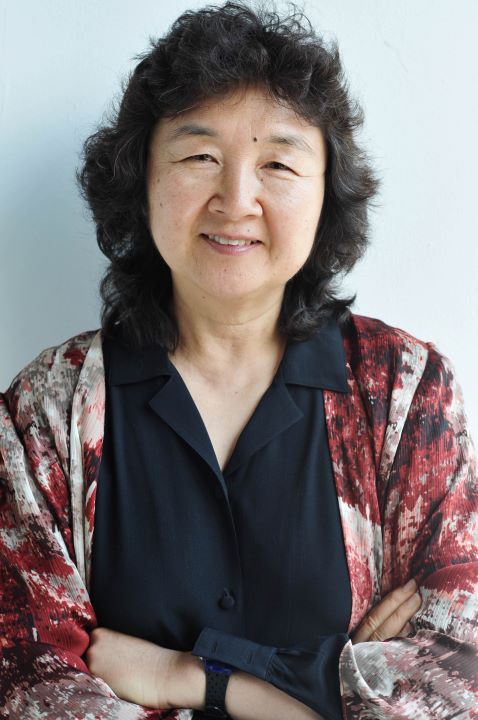
Philosopher Mark Nepo stated, “When we heal ourselves, we heal the world.” Whether you are new to FAP or are advanced, this workshop aims to take participants to the next level of understanding the application of FAP’s five rules, of healing and awakening in areas of both darkness and light so that you can be your best selves in the therapy room and in your daily lives.
Using awareness, courage, and therapeutic love (behaviorally defined), FAP augments the impact of treatment by focusing on the therapeutic opportunities presented when clients' daily life problems occur in the therapy session, and by the therapist showing up as a whole person who is willing to be courageously vulnerable in the service of client growth. FAP both encourages and lends itself to integration with other treatment approaches.
The conceptual and experiential format of this workshop will help super-charge your next therapy session. Content will include videotaped therapy sessions, new experiential exercises, demonstrations and client handouts. By giving and receiving FAP-informed interactions, you will delve deeper into your abilities to increase the emotional depth and interpersonal focus of your treatment. Experientials will be book-ended with contextual behavioral rationales and why/how the exercises can be relevant to your clinical work.
The vision of this workshop is to not only enhance your competence in FAP, but to: 1) provide a refuge for the unseen, unmet, and unheld to return home to your heart; 2) delve into your own therapeutic behaviors so that you can impact your clients by changing how you respond to them, rather than by trying to “fix” them; 3) experience how you can bring more influence through our Live with Awareness, Courage & Love (ACL) model for the general public that is now being implemented in 5 continents. You will receive our Live with ACL manual with 10 session protocols that you can immediately start adapting to your clients, family and friends, and community.
About Mavis Tsai, Ph.D.:
Dr. Tsai, co-originator of FAP, is a clinical psychologist in independent practice, and also works at the University of Washington as a research scientist and as the director of the FAP Specialty Clinic within the Psychological Services and Training Center. She has co-authored five books and over 60 articles on FAP, is an ACBS Fellow, and received the Washington State Distinguished Psychologist Award in recognition of significant contributions to the field of Psychology. She is on the Fulbright Senior Specialists Roster, has presented “Master Clinician” sessions at the Association for Behavior and Cognitive Therapy, has led numerous workshops nationally and internationally, and trains clinicians all over the world in FAP via Skype.
About Robert J. Kohlenberg Ph.D.:
Dr. Kohlenberg received his doctorate at UCLA and is a Professor of Psychology at the University of Washington where he served as the Director of Clinical training. He is certified by the American Board of Professional Psychology, received the Washington State Psychological Association’s Distinguished Psychologist Award, and is a Fellow of ACBS, Society for Exploration of Psychotherapy Integration, and American Academy of Clinical Psychology. He is the co-originator of Functional Analytic Psychotherapy (FAP), has attained research grants for FAP treatment development, has co-published many papers and six books, including Functional Analytic Psychotherapy: A Guide for Creating Intense and Curative Therapeutic Relationships.
Learning Objectives:
- Describe awareness, courage and therapeutic love in behavioral terms and practice these behaviors in the workshop.
- Explore, receive, and express the deeper recesses of your true self so that you can increase intensity, depth and connection in your therapeutic relationships.
- Explain how to recognize and therapeutically respond most effectively to client in-session problematic behaviors and how to potentially reinforce in-session target behaviors in ways adapted to your clients’ needs.
- List, explain, and address how your clients can trigger your own problematic behaviors and avoidances and so that you can enhance your target behaviors as a therapist.
- Describe how you can more consistently operate in a field of lightness, joy, humor, compassion and generosity, especially when triggered by your clients.
- Describe when commonly used interventions can be inadvertently counter-therapeutic.
- Demonstrate using all five FAP rules in order to facilitate generalization of client in-session gains.
- Explain how to find the balance that works for you and others in terms of vulnerability versus safety.
- List your behaviors that distance others and those that invite closeness.
- Describe Live with Awareness, Courage & Love protocols and ways to adapt them to your clients, family and friends, and community.
Target Audience: Beginner, Intermediate, Advanced, Clinical
Components: Conceptual analysis, Original data, Experiential exercises, Didactic presentation, Case presentation, Role play
Package Includes: A general certificate of attendance, lunch, and twice daily coffee/tea break on site.
Understanding ACT Assessment and Treatment: Not Just for Beginners
Understanding ACT Assessment and Treatment: Not Just for Beginners
Understanding ACT Assessment and Treatment: Not Just for Beginners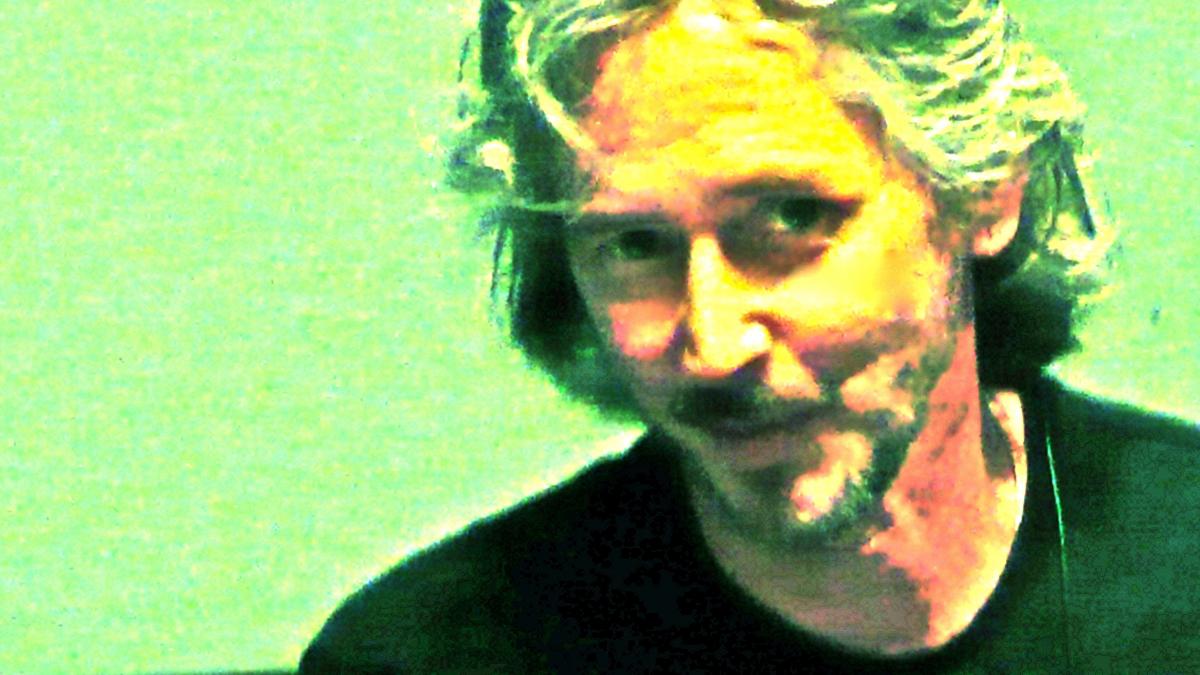
Workshop Leader:
Kelly G. Wilson, Ph.D.
This workshop will include:
- Multiple live demos by Dr. Wilson
- Experiential exercises
- Practice interviews
- Practice assessment components
In the workshop, we will use the structure of the Hexaflex Functional Dimensional Experiential Interview (HFDEI; from Mindfulness for Two, Wilson & DuFrene, 2009). This interview provides strong linkage between treatment, assessment, and case conceptualization. The HFDEI is an unusual interview. First, it doesn’t bow to syndromal classification. The user of the interview need not discard syndromal classification. Many circumstances require them. Although the diagnoses in the HFDEI are not DSM syndromes, many of the signs and symptoms required for DSM diagnoses will be elicited in the context of this interview. Second, the interview is organized around a dimensional understanding of psychological difficulties. Third, and probably most unusual, the interview contains significant experiential components. The interview for the hexaflex is not a mere series of questions, rather it involves a set of questions embedded in a series of experiential exercises. The exercises and questions will provide you with directly observable samples of client behavior that will allow for rating those behavior samples in terms of the six facets of the hexaflex. The entire interview is embedded in a series of questions about valued domains of living.
ACT is not a treatment aimed at the elimination of symptoms, rather it’s a treatment aimed at the enhancement and development of valued living. Because there’s an intimacy between values and vulnerabilities, an examination of values is a likely entry point to seeing the relationship between difficulties with behavior change processes on the one hand and mindfulness processes on the other. In addition, such an interview helps you and your client remain closely connected to the ACT model. Work with client struggles are always directed and dignified by valued living. Likewise progress in ACT is ultimately to be found in increases in valued living.
The workshop will involve a series of exercises and intensive practice with the HFDEI. Practice with the interview will be interspersed with LIVE DEMOS of interview segments. Participants will practice looking at each of the six facets of the hexaflex and will practice at case conceptualization. As is usual for me, this workshop will be highly experiential. In the workshop, we will mix the experiential and conceptual. This mixing itself is practice for the mixing of conceptual and experiential in our treatment. The interview can provide a framework for assessment and also for treatment. In a short version, the interview allows for the assessment of all six core ACT processes. The interview, in an extended form can serve as a template for the provision of treatment.
Prior to the workshop I will make workshop preparation materials available to attendees. For additional information, please contact me at [email protected]
About Kelly G. Wilson, Ph.D.:
Kelly G. Wilson, Ph.D., is a Professor of Psychology at the University at Mississippi. He was the first President of the Association for Contextual Behavioral Science, a Representative-at-Large of the Society for a Science of Clinical Psychology, and is one of the co-founders of Acceptance and Commitment Therapy. Dr. Wilson received his B.A. Summa Cum Laude from Gonzaga University and his Ph.D. at the University of Nevada, Reno. After running a National Institutes on Drug Abuse clinical trial in Reno, he joined the faculty at the University of Mississippi in 2000 where he established the Mississippi Contextual Psychology Lab. Dr. Wilson is a devoted mentor a university-wide Elsie M. Hood Award for undergraduate teaching and also the University of Mississippi Award for Excellence in Graduate Teaching and Mentoring. Dr. Wilson has devoted himself to the development and dissemination of Acceptance and Commitment Therapy, Relational Frame Theory, and their underlying theory and philosophy for the past 28 years, publishing 53 articles, 38 chapters, and 11 books. He has central interests in the application of behavioral principles to understanding topics such as purpose, meaning, values, therapeutic relationship, and present moment focused work. Dr. Wilson has presented his re 32 countries, and has participated as co-investigator in a wide range of research projects in the U.S. and internationally.
Learning Objectives:
The attendee will be able to:
- Describe the six dimensions of the ACT model.
- Describe the relationship between assessment and treatment within the ACT model.
- Utilize assessment appropriately to directly generate treatment targets.
- Explain how to conceptualize client difficulties in terms of core ACT processes.
- Design specific treatment strategies based on this conceptualization.
- Explain when to switch between mindfulness and acceptance practices on the one hand and active values and commitment practices on the other.
- Explain how to conceptualize “stuckness” in client behavior
- Create strategies in response to “stuckness.”
- Prepare mini mindfulness and acceptance exercises.
- Apply mini values and commitment exercises.
Target Audience: Beginner, Intermediate, Advanced, Clinical, Research
Components: Experiential exercises, Didactic presentation, Case presentation, Role play
Package Includes: A general certificate of attendance, lunch, and twice daily coffee/tea break on site.
Using metaphor in training psychological flexibility
Using metaphor in training psychological flexibilityUsing metaphor in training psychological flexibility
Workshop Leaders: 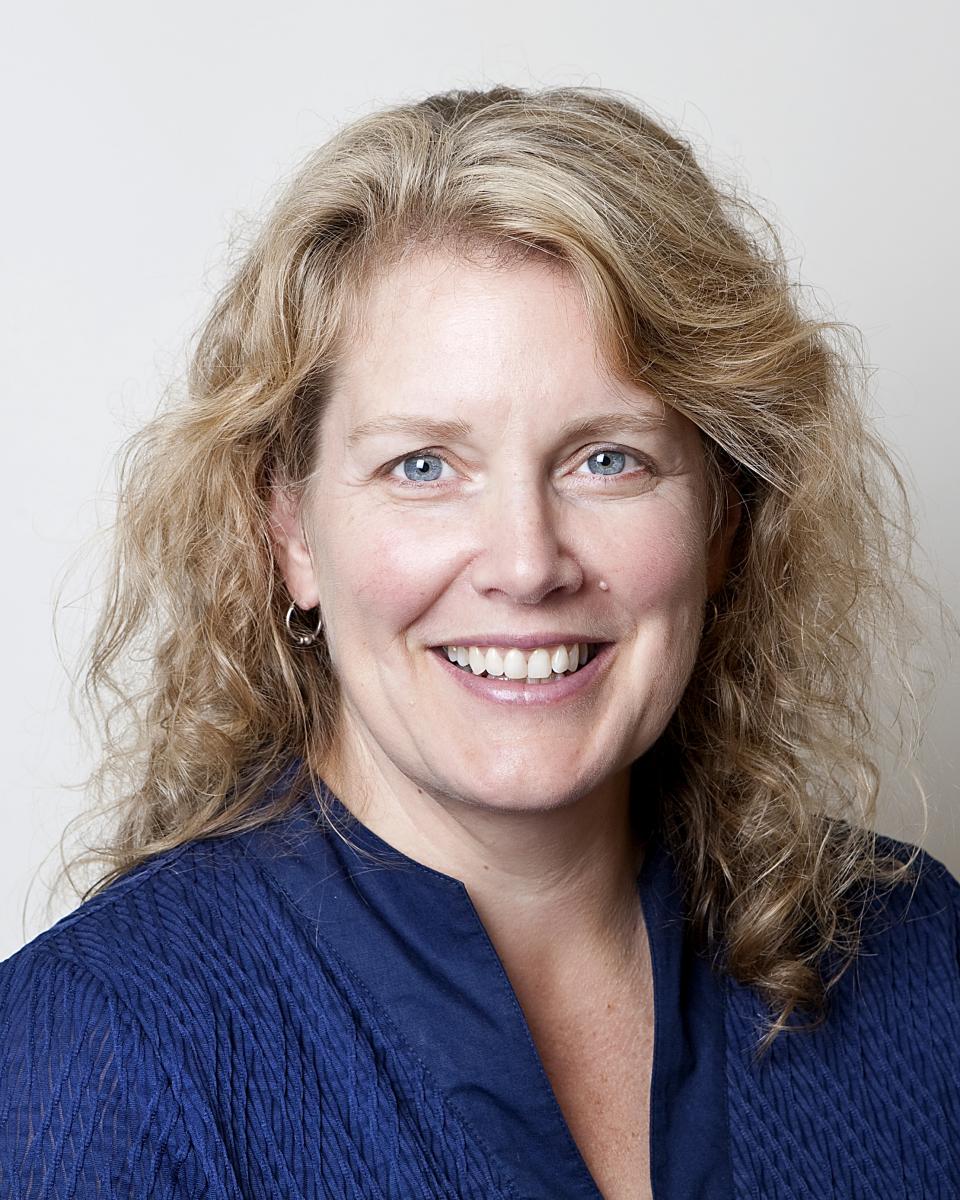

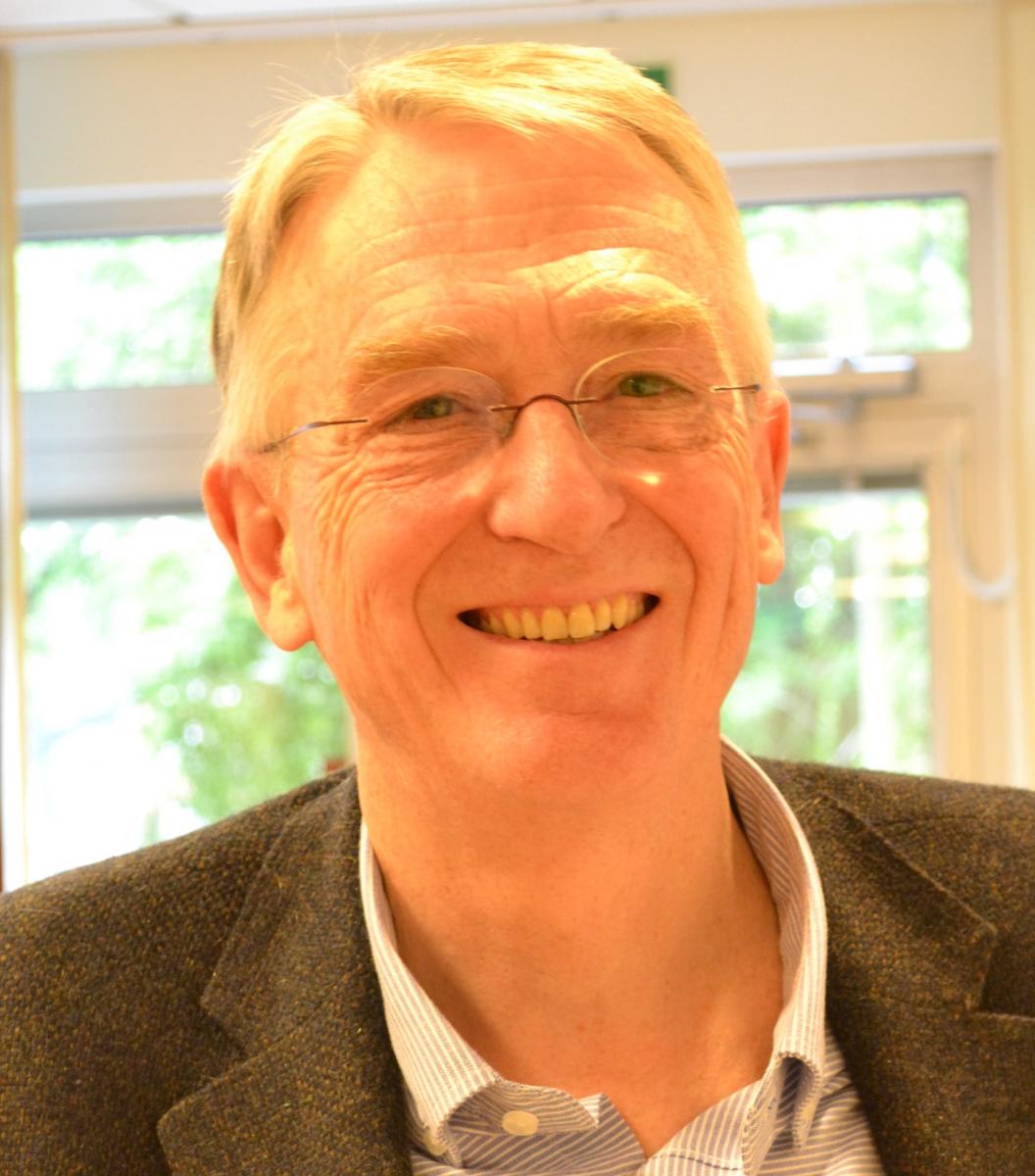
Psychological flexibility is a central concept in ACT and is increasingly used more generally in discussions on psychological health and psychological treatment. Helping people improve their own flexibility is thus a key task both in psychotherapy and in other disciplines which serve human health and achievement. Metaphor is often central to change processes in ACT, DBT and many other therapy models and can thus be used for training psychological flexibility
This workshop will take it’s starting point in recent research targeting both metaphor use and psychological flexibility, focusing on implications of relational frame theory. With grounding in the scientific results this workshop will be highly practical and devoted to training the skills of using metaphor in therapeutic work. Learning activities will include live demonstration and analysis, behavioral rehearsal with feedback, role plays and different exercises aimed at improving clinical skills of the participants.
This training is appropriate for clinicians at all levels of expertise and working with any population in any treatment setting. No prior knowledge of CBS and RFT is required.
About Niklas Törneke, M.D.:
Niklas Törneke is a Swedish psychiatrist and licenced psychotherapist. He works in private practice and shares his time between clinical work and training/supervising other therapists both in Sweden and internationally. He was originally trained a cognitive therapist and has worked mainly with acceptance and commitment therapy since 1998. He is a recognized ACT-trainer. He is the author of three books on modern behavior therapy: ABCs of human behavior. Behavioral principles for the practicing clinician (2008, co-authored); Learning RFT. An introduction to relational frame theory and it’s clinical application (2010) and Metaphor in practice. A professionals guide to using the science of language in psychotherapy (2017). As a trainer Niklas is especially known for his ability to turn complex theoretical issues into hands on clinical work.
About Carmen Luciano, Ph.D.:
Carmen Luciano, Ph.D., is Professor of Psychology and Director of the Functional Analysis Doctoral Program at University of Almeria, Spain. She is also Director of Master in Contextual Psychology in Madrid Institute of Contextual Psychology (MICPSY). She focuses her work in tracking the connection of philosophical, basic and applied dimensions as a contextual integrative tree of knowledge connected to others. She has directed thirty doctoral theses and has published pivotal papers in Behavior Analysis, RFT and ACT. She published the first Spanish ACT book in 2002 with Kelly Wilson and a new book is being on its way. She has a vibrating and creative style both while teaching, doing research and working with clients.
About Kelly Koerner, Ph.D.:
Kelly Koerner, Ph.D., is CEO and Creative Director of the Evidence-Based Practice Institute, LLC, where she combines technology, design, and social enterprise to help clinicians improve clients' outcomes. She is an expert clinician, clinical supervisor, and trainer in Dialectical Behavior Therapy with specialized training in other evidence-based practices. As a trainer, she is known for her warmth and highly engaging, practical teaching style. She is adjunct clinical faculty at the University of Washington. Her recent book is, Doing Dialectical Behavior Therapy: A Practical Guide.
Learning Objectives:
- Explain how metaphor use can be analyzed with the help of relational frame theory
- Describe how psychological flexibility can be understood with the help of relational frame theory
- Utilize a few basic principles in working with metaphors that increase psychological flexibility
- Describe the relationship between use of metaphor on one hand and the use of experiential exercises as is typically done in ACT on the other.
- Utilize metaphors in doing a functional analysis
- Apply metaphors as a central tool for helping others to unhook from problematic psychological phenomena
- Utilize metaphors as a central tool for helping others to take direction towards important things in their lives
- Create metaphors in a therapeutic dialogue, focusing relevant clinical targets.
- List metaphors spontaneously used by a client and utilize them according to basic principles for increasing psychological flexibility
- Co-create metaphors with a client, as part of a natural dialogue
Target Audience: Beginner, Intermediate, Advanced, Clinical
Components: Conceptual analysis, Literature review, Experiential exercises, Didactic presentation, Case presentation, Role play
Package Includes: A general certificate of attendance, lunch, and twice daily coffee/tea break on site.
